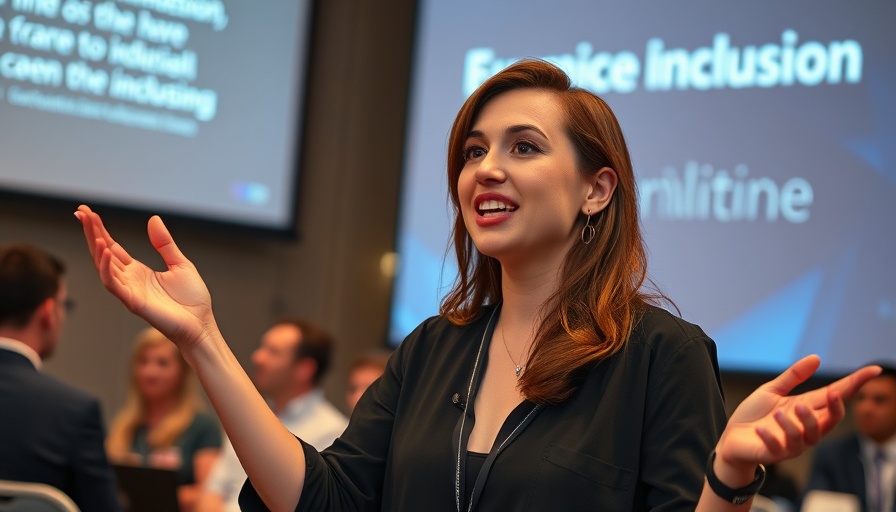
Rethinking DEI: From Superficial Gestures to Meaningful Change
In recent years, the buzz surrounding Diversity, Equity, and Inclusion (DEI) has faded as companies grapple with the effectiveness of their initiatives. Y-Vonne Hutchinson, a workplace inclusion expert, recently shared her insights on the shortcomings in traditional DEI practices and called for a more authentic approach. In a world increasingly affected by challenges such as climate change and social unrest, it’s vital for organizations to reconnect with their core values of inclusion and compassion.
The Pitfalls of Performative DEI
Many organizations launched DEI initiatives in the wake of George Floyd’s tragic death in 2020, driven by a sense of urgency. However, this urgency has often led to patchy implementation without a sustainable plan for long-term change. Reports indicate that troubling workplace inequities persist: white candidates remain disproportionately favored in hiring processes, while 91% of employees report experiencing discrimination at work, according to Druthers Search.
As companies have stepped back from DEI initiatives amid backlash and shifting societal attitudes, the question remains: how can these organizations move past superficial gestures into a realm of structured, systemic change? Hutchinson emphasizes the importance of addressing real-life anxieties associated with our changing world, ensuring that DEI strategies resonate with every employee, regardless of their background.
A Shift Towards Targeted Solutions
Current data and research illustrate the limitations of conventional DEI training, which often prioritizes awareness over action. As highlighted by Edward H. Chang from Harvard Business School, generic diversity training has failed to yield meaningful results. Instead, there is a pressing need for tailored training focused on behavior and timing to drive impactful change in hiring and retention practices.
By framing DEI as a shared responsibility rather than a series of tick-box exercises, organizations can pave the way for collective improvement. For instance, John A. Powell's concept of “targeted universalism” shifts the focus from merely assisting underrepresented groups to dismantling barriers that hinder all employees from reaching their full potential.
Embracing a Systemic Approach to DEI in Hiring Practices
Organizations must critically examine their hiring patterns, particularly concerning who is promoted to leadership roles. The tendency to favor familiar backgrounds perpetuates systemic biases. Companies that genuinely aspire to diversify their leadership need to broaden their talent pool and invest in decisions that foster inclusivity. As urged by Hutchinson, accountability, transparency, and meaningful metrics must guide hiring practices.
Practical application is key; making DEI discussions relevant at crucial decision-making moments can help shift mindsets. Hiring managers, for example, might benefit from timely reminders about the importance of diverse candidates and how inclusion strengthens team dynamics.
Future Perspectives and the Path Forward
Despite the challenges faced by DEI frameworks, the demand for equitable workplaces continues unabated. As organizations contemplate their next steps, the focus must hinge not only on maintaining initiatives but on meaningful, systemic change. Companies that neglect to invest in DEI as a vital aspect of their culture risk alienating top talent and facing long-term consequences in their workforce dynamics.
The journey towards substantive DEI reform requires embracing a mindset shift, moving from performative actions to results-driven strategies. By fostering an environment where fairness is integrated into every aspect of business—from hiring to performance reviews—organizations can ensure that all employees feel valued and empowered to contribute.
Call to Action: Think Beyond the Black Square
It’s time to move past superficial gestures in DEI efforts and rethink how we engage with the principle of inclusivity fundamentally. Hutchinson’s message reminds us that the true aim of DEI is not merely to check boxes but to create an inclusive environment that nurtures growth for everyone. Organizations must actively commit to accountability and develop strategies rooted in genuine engagement with their employees’ diverse experiences. The challenge is clear: It’s not just about diversity; it’s about creating sustainable, systemic change that truly makes a difference.
 Add Row
Add Row  Add
Add 




Write A Comment